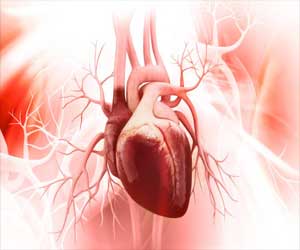- Home
- Editorial
- News
- Practice Guidelines
- Anesthesiology Guidelines
- Cancer Guidelines
- Cardiac Sciences Guidelines
- Critical Care Guidelines
- Dentistry Guidelines
- Dermatology Guidelines
- Diabetes and Endo Guidelines
- Diagnostics Guidelines
- ENT Guidelines
- Featured Practice Guidelines
- Gastroenterology Guidelines
- Geriatrics Guidelines
- Medicine Guidelines
- Nephrology Guidelines
- Neurosciences Guidelines
- Obs and Gynae Guidelines
- Ophthalmology Guidelines
- Orthopaedics Guidelines
- Paediatrics Guidelines
- Psychiatry Guidelines
- Pulmonology Guidelines
- Radiology Guidelines
- Surgery Guidelines
- Urology Guidelines
Golden Hour: Use of Vitamin E for Emergency Management Of Heart Attack, new study

Vitamin E may be an effective low-cost treatment for preventing muscle damage in heart attack patients, finds new study. The first dose of Vitamin E may be instituted in an ambulance or on the arrival of the patient in ED before Angioplasty. The study has been published in Redox Biology.
Vitamin E is the collective name for a group of fat-soluble compounds with distinctive antioxidant activities. Vitamin E is found naturally in some foods, added to others, and is also available as a dietary supplement. Numerous foods provide vitamin E. Nuts, seeds, and vegetable oils are among the best sources of alpha-tocopherol, and significant amounts are available in green leafy vegetables and fortified cereals.
Early studies have found Vitamin E could be used to save the muscle from dying during a heart attack.
Heart attack is a leading cause of death globally wherein the blood supply to the heart muscle is usually cut off when an artery supplying the heart muscle is blocked by a blood clot.
"One of the most effective anti-oxidant and anti-inflammatory agents is vitamin E and its derivatives," said Professor Karlheinz Peter, the Baker Institute's Deputy Director, Basic and Translational Science and lead author of the study.
"Our treatment regime reflects clinical conditions, where patients could receive their first application of vitamin E in the ambulance or upon their arrival in the emergency department, before reopening and stenting the blocked vessel and the following days in hospital before discharge."
Our next step is to test an already approved formulation of Vitamin E in patients admitted with a heart attack," said Professor Peter. "We plan to prove that heart function is preserved using sensitive magnetic resonance imaging. Thereby, we hope to establish an inexpensive and effective therapy for patients with heart attack."
Nutritional scientist and vitamin specialist from Jena University in Germany, Dr Maria Wallert said interestingly, Vitamin E has been trialled unsuccessfully for preventing heart attacks but has not been investigated for actually treating heart attacks.
"As there is currently no drug available that can reduce the cardiac damage caused by an overshooting inflammation after reopening of a blocked coronary artery, the potential impact of our finding on cardiovascular health would be signi?cant," said Dr Wallert.
The doses of vitamin E given in our study is approved to be safe by the European Commission Scientific Committee on Food. We hereby provide an experimental design which potentially can be translated to human trials without concern surrounding the safety of vitamin E applications.
effectivefindsheart-attacklow costMImuscle damagemyocardial infarctionnew studypatientsRedox BiologytreatmentVitamin E
Next Story
NO DATA FOUND

Disclaimer: This site is primarily intended for healthcare professionals. Any content/information on this website does not replace the advice of medical and/or health professionals and should not be construed as medical/diagnostic advice/endorsement or prescription. Use of this site is subject to our terms of use, privacy policy, advertisement policy. © 2020 Minerva Medical Treatment Pvt Ltd